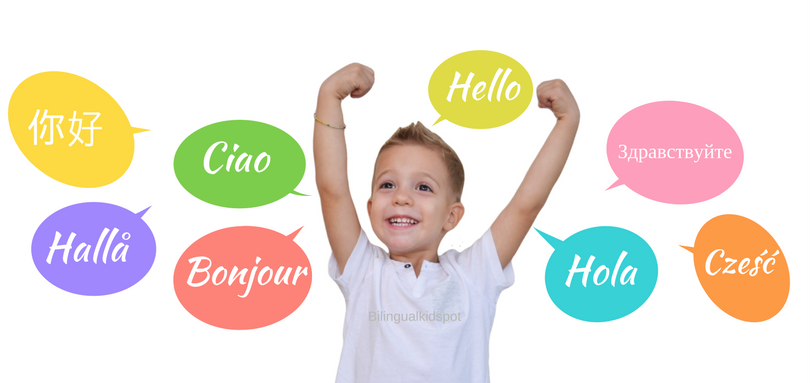
Multilingualism refers to the ability to speak and understand two different languages fluently. Raising multilingual children has become increasingly popular, and for good reason. Studies have shown introducing a second language in early childhood can have numerous benefits for children, including cognitive, linguistic, social, and cultural advantages. In this blog, we will explore some of the benefits of multilingualism for children and provide tips for raising multilingual kids.
Cognitive Benefits Multilingualism has been linked to improved cognitive abilities, including problem-solving, memory, and executive function. Multilingual children often show greater flexibility and creativity in their thinking, which can help with academic and social success. They also have an increased capacity for multitasking and better performance on tasks that require mental agility.
Linguistic Benefits Multilingual children have a unique advantage in their ability to communicate and understand languages. They often have a better understanding of grammar, syntax, and phonetics. Multilingual children can switch between languages with ease and have an expanded vocabulary. These skills can be an asset in both personal and professional settings.
Social Benefits Multilingualism can promote cultural understanding and tolerance. It allows children to communicate with a wider range of people and fosters empathy and respect for different cultures. Multilingual children are also more likely to appreciate and embrace diversity.
Cultural Benefits Multilingualism provides children with access to different cultures, literature, music, and films. It can open doors to new experiences and perspectives, and foster a sense of identity and pride in their cultural heritage.
Tips for Raising Multilingual Kids:
Start Early: The earlier children are exposed to a second language, the easier it is for them to learn it. Ideally, children should be exposed to both languages from birth.
Speak Consistently: It is important to establish a consistent language pattern at home. For example, one parent can speak one language and the other parent can speak the other language.
Use Multiple Methods: Use a variety of methods to teach both languages, such as books, music, movies, and language classes.
Make it Fun: Learning a new language should be a fun and enjoyable experience. Incorporate games, activities, and play to make language learning engaging and interactive.
Be Patient: Learning a second language takes time, so be patient and don't get discouraged if progress is slow. Consistent exposure and practice will eventually lead to proficiency.
In conclusion, raising multilingual children can have numerous benefits for their cognitive, linguistic, social, and cultural development. By providing consistent exposure and practice, and making language learning fun and enjoyable experience, parents can help their children become proficient in two or more languages, and give them a unique advantage in their personal and professional lives.
These are some quick recommendations from British Orchard Nursery, the largest nursery chain in UAE. These tips come from our top EYFS experts who have helped children develop into confident leaders of tomorrow. A good nursery, such as British Orchard Nursery, plays a vital role in the early years' development of your little ones. When selecting a nursery near you, it is essential to consider the curriculum, programs, and facilities provided to the child. However, we highly recommend choosing British Orchard Nursery due to our expertise, programs, and quality certifications. As the biggest quality-certified preschool chain in Dubai, we prioritize innovation and quality in childcare.
“Children nursery”
“Daycare center”
“Early education”
“Preschool”
“Infant care”
“Toddler care”
“Play-based learning”
“Nurturing environment”
“Personalized care”
